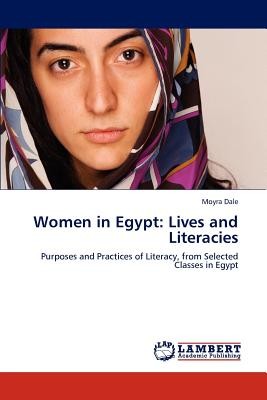
- We will send in 10–14 business days.
- Author: Moyra Dale
- Publisher: LAP Lambert Academic Publishing
- ISBN-10: 365913869X
- ISBN-13: 9783659138690
- Format: 15.2 x 22.9 x 4.2 cm, softcover
- Language: English
- SAVE -10% with code: EXTRA
Reviews
Description
This book is an ethnographic study of the practices and purposes of women attending literacy classes in Egypt. Beginning in two rural classes, the research progresses to focus on two urban classes, including Muslim and Christian women, from teenage years to those in their fifties. The construction of literacy in performance-based classrooms, and in common, socially-held understandings of learning, disallows much of the women's own experiences, literacies and identities. Community attitudes around roles and gender affect attendance at literacy classes more than the motivation of individuals. Literacy policies could be more effectively directed towards reshaping community values as well as persuading individuals. At the same time, literacy lessons need to be shaped around what women want to read and write, making more use of the texts in women's lives, and particularly their own writing. This research is useful to those working in adult literacy or development, particularly among women or in the Middle East.
EXTRA 10 % discount with code: EXTRA
The promotion ends in 17d.10:46:13
The discount code is valid when purchasing from 10 €. Discounts do not stack.
- Author: Moyra Dale
- Publisher: LAP Lambert Academic Publishing
- ISBN-10: 365913869X
- ISBN-13: 9783659138690
- Format: 15.2 x 22.9 x 4.2 cm, softcover
- Language: English English
This book is an ethnographic study of the practices and purposes of women attending literacy classes in Egypt. Beginning in two rural classes, the research progresses to focus on two urban classes, including Muslim and Christian women, from teenage years to those in their fifties. The construction of literacy in performance-based classrooms, and in common, socially-held understandings of learning, disallows much of the women's own experiences, literacies and identities. Community attitudes around roles and gender affect attendance at literacy classes more than the motivation of individuals. Literacy policies could be more effectively directed towards reshaping community values as well as persuading individuals. At the same time, literacy lessons need to be shaped around what women want to read and write, making more use of the texts in women's lives, and particularly their own writing. This research is useful to those working in adult literacy or development, particularly among women or in the Middle East.


Reviews